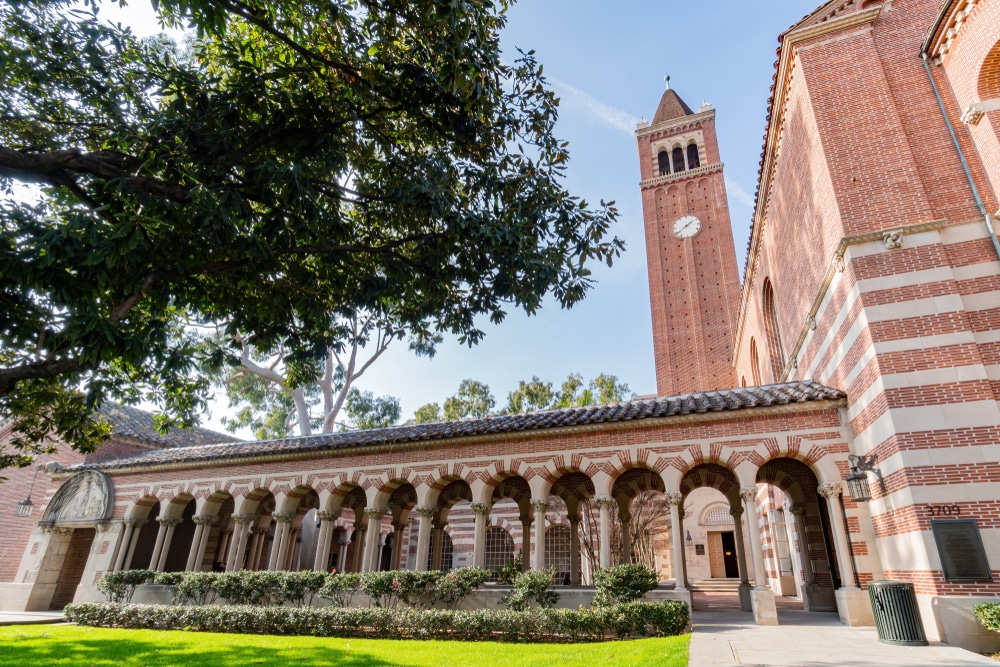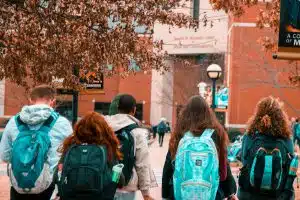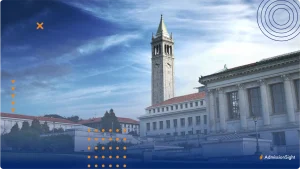Why You Should Consider The Simons Summer Research Program
The Simons Summer Research Program at Stony Brook University provides high school students who are both motivated and academically gifted an opportunity to participate directly in science, math, or engineering research. Participants are immersed in a research university environment where they work alongside esteemed faculty mentors. They learn practical laboratory skills and become integral members of dynamic research groups.
What is the Simons Summer Research Program about?
The Simons Summer Research Program at Stony Brook University offers motivated and academically talented high school students the chance to engage in hands-on research in fields like science, math, and engineering. Participants, also called Simons Fellows, work under the guidance of faculty mentors, learn laboratory techniques and tools, and become part of active research teams. This program provides a real-world look into life at a research university and helps students gain valuable experience and skills in their areas of interest.
Launched in 1984 as a local initiative for high school students, the Simons Summer Research Program at Stony Brook University now attracts participants nationwide. During the program, Simons Fellows are paired with faculty mentors from the university, join existing research teams, and take on project responsibilities. Their experience culminates in the creation of a research abstract and a poster presentation.
Throughout their time at Stony Brook, the Fellows attend weekly talks by faculty on various research topics and participate in workshops, tours, and special events designed to enrich their experience. The program concludes with a poster symposium, where the students display their work and receive a stipend award.
Who is eligible to join the Simons Summer Research Program?
The program strongly encourages applications from students who are passionate about science and exhibit creativity, independence, and a talent for hands-on work.
Applicants must be in their junior year (11th grade) of high school at the time of application, hold a U.S. citizenship or permanent residency, and be at least 16 years old by the program’s start date. There are no exceptions to these requirements.
To apply for the Simons Summer Research program, interested candidates must first be nominated for their high school. Each institution can nominate up to two students, who must be in their junior year (11th grade). Nominating more than two students will result in the disqualification of all nominees.
How does the Simons Summer Research Program work?
Participants in the program can either live on campus alongside other student researchers or commute daily. On-campus housing is provided throughout the seven-week duration of the program, including weekends.
Students opting for on-campus accommodation typically share a double room in one of the university’s residence halls and must pay their housing fees before the program begins. It’s important to note that minor students residing on campus are not allowed to have cars.
The Simons Summer Research Program spans seven weeks from late June to mid-August at Stony Brook University. Students have the opportunity to explore the realm of research under the guidance of a faculty mentor whose interests align with their own. This personalized mentorship is a unique feature of the Simons experience.
Throughout the program, you will focus on hands-on laboratory work, collaborating closely with graduate students and faculty to engage in research beyond the boundaries of your chosen field. This experience equips you with advanced research skills, preparing you for university-level study and future careers in science.
In addition to research, you will participate in various activities, including seminars, weekly research workshops, and social events that help you meet with peers, faculty, and other researchers. The program also features visits to various research laboratories.
Participants in the Simons program are required to spend at least 4 hours daily working with their mentor or research group throughout the duration of the program. The exact hours may differ and should be established in consultation with the assigned faculty mentor.
The program ends with a poster symposium, where you present your research findings to the program community, faculty, and guests, including family members. This event celebrates your hard work and contributions to your fields of study.
This year’s program will be held from July 1, 2024 to August 9, 2024
What else should you know about the Simons Summer Research Program?
Program Costs
There is no tuition fee for admitted students, making the program significantly more accessible and affordable for them and their families.
However, the program does not cover all costs. Participants are responsible for their own transportation, meals, and housing expenses if they choose to reside on campus. On the other hand, commuting students will not incur any housing costs during the seven-week duration of the program.
Estimated cost for the residential option: $2800
**includes a $600 meal plan and a Student Health Service fee of $61.50
Application Process
The following steps detail the process of applying to the program:
Step 1
Your school must nominate you first. The nomination deadline was January 31, 2024. Applications that are submitted late, incomplete, or independently will not be considered and will result in disqualification.
Step 2
You can begin the online application after verifying your nomination status with the designated school official. Once your nomination is submitted, you should receive an invitation to apply within 48 hours. You must prepare to submit your transcript of records.
You should complete the application form in one sitting (4 hours or less) to avoid timing out! Once your application is submitted, you should receive an automated confirmation email. Please verify that you can receive messages from them; it is recommended that you use a non-school email address to ensure their communications do not end up in your spam folder.
Step 3
Applicants must secure recommendations from two high school teachers, preferably in math, science, or another STEM field, and should ensure these letters are submitted by the application deadline.
After an application is submitted, an automatic email will be sent to the individuals providing a letter of recommendation for the applicant.
A helpful recommendation letter for the Simons Summer Research Program should include:
- A discussion of the applicant’s key strengths and weaknesses relevant to their participation in the program;
- Specific examples demonstrating the student’s passion for science, research interest, and capability for scientific work;
- An assessment of the student’s ability to work both independently and collaboratively and adapt to both in-person and virtual research environments;
- Any additional information that might aid the faculty selection committee in evaluating the student’s application.
Important Dates
- School Nominations Deadline: January 31, 2024
- Application Deadlines: February 7, 2024
- Teacher Recommendations Deadline: February 15, 2024
- Admissions Decision Notification: early April 2024 (sent via email)
- Program Dates: July 1, 2024 – August 9, 2024
Application Materials
Here is a list of materials or resources you need to prepare during the application process
- Nomination from your high school
- Recommendation letter from 2 teachers and/or mentors
- Transcript of records
Frequently Asked Questions about the Simons Summer Research Program
1. Is the summer program prestigious?
The Simons Summer Research Program is definitely prestigious and its selective application process reflects this high regard. While prior experience is not necessary, the application demands considerable effort, including essays and a nomination from the applicant’s school. Candidates who demonstrate passion and active engagement in STEM fields stand a good chance of being chosen for the program.
2. What is the acceptance rate in the said program?
The program is reported to accept around 40 Simons Fellows every year, drawing the acceptance rate to around 8%. This means admissions are tight and competitive.
3. My school did not nominate me; am I still eligible to apply for the Simons program?
Unfortunately, only nominated students are invited to the program. Each school has the discretion to establish its own selection process—whether it be a lottery, first-come/first-served, or a pre-application system—to choose their two designated nominees.
4. Can I choose a mentor that isn’t on the 2024 Research Mentor List?
Applicants should choose their top three faculty mentors and indicate that on their online application. Requests to work with mentors not included on the official list cannot be accommodated. However, students interested in conducting independent research (outside of the SSRP program) are encouraged to contact faculty members directly to explore potential arrangements.
5. How do I know that my application has been completed?
Applicants will receive notifications when their letters of recommendation have been submitted. Teachers submitting recommendation letters will get an automated email to confirm their submission. It is advised that both applicants and teachers check their spam folders for these notifications, as they may be filtered there.
All applicants will be informed of their admission decision in early April. The Simons program does not offer early admission decisions. Applicants who receive offers from other programs and need to commit are encouraged to pursue those opportunities. Those wishing to withdraw their application or admission candidacy should contact [email protected].
6. How much are the tuition fees for the program?
There are no tuition fees; however, participants must cover their own transportation and dining expenses (for commuters) as well as residential costs (if residing on campus).
7. Are there additional requirements needed from the participants once they have been admitted to the program?
Once admitted, applicants and their parents or guardians will need to provide the program with proof of medical insurance coverage, sign liability waivers, and submit emergency contact forms, among other documents.
9. Are Simon Fellows expected to compete in science competitions?
Simons Program research projects often face time constraints and typically do not meet the eligibility requirements for submissions to major science competitions (e.g., ISEF, Regeneron STS) unless significant additional work is conducted on the project in collaboration with a university faculty mentor. Students interested in participating in national science competitions should discuss their intentions with their mentors before the program begins.
What areas might students need a refresher on before the program starts?
Prior to starting the Simons Research Program, students will benefit from refreshing their knowledge in several key areas, depending on the specific focus of their research project. These areas include:
- Biology: foundational concepts in cell biology, genetics, biochemistry, and molecular biology could be crucial, especially for projects that involve lab work in these fields.
- Chemistry: Basic principles of chemistry including atomic structure, chemical reactions, stoichiometry, and organic chemistry, are essential for projects involving chemical analysis or synthesis.
- Physics: Knowledge of mechanics, electromagnetism, thermodynamics, and possibly more advanced topics like quantum mechanics or relativity could be required for physics-focused research.
- Mathematics: A strong knowledge of algebra, calculus, statistics, and potentially more advanced areas like differential equations or linear algebra is essential, especially for projects that involve significant data analysis or mathematical modeling.
- Computer Science (Coding): Basic to advanced programming skills, depending on the project’s requirements, including familiarity with programming languages such as Python, Java, or R and concepts in data structures, algorithms, or computational modeling.
- Research Methods: Understanding research design, data collection techniques, statistical analysis, and scientific writing could be beneficial across all STEM fields.
Students should also consider consulting with their mentors or reviewing past coursework and online resources to better prepare for their specific research projects. Engaging in STEM communities and forums can also provide insights and additional preparation.
Is the Simons Summer Research Program intense?
Yes, the Simons Summer Research Program is considered intense due to its challenging and immersive nature. Participants engage in hands-on, university-level research under the mentorship of Stony Brook University faculty. The program demands a significant commitment of time and effort, as students are expected to work on their research projects for several hours each day, typically around 4 hours or more.
In addition to the research component, students attend seminars, workshops, and networking events, further contributing to the program’s demanding schedule. This intensive format challenges students and provides a deep exploration of the scientific research process. It is an enriching experience for those interested in pursuing science, math, or engineering careers.
Should you consider the Simons Summer Research Program?
The Simons Summer Research Program is an excellent opportunity for high school students passionate about science, technology, engineering, and mathematics (STEM). Here are five reasons why participating in this program can be highly beneficial:
- Hands-On Research Experience: The program allows students to experience hands-on, real-world research at a university level. This experience is invaluable, as it helps students understand the challenges of scientific research, including problem-solving, experimental design, and data analysis.
- Mentorship from University Faculty: Students work closely with faculty mentors from Stony Brook University. This mentorship can provide personalized feedback and promote a deeper understanding of the subject matter, improving the educational experience.
- Enhanced College Applications: Participation in a prestigious program like the Simons Summer Research Program can significantly strengthen a student’s college application. It demonstrates a commitment to academic excellence and a serious interest in STEM, qualities that are highly regarded by admissions committees. The intensive research experience and potential for producing significant research outcomes make participants stand out in the competitive admissions process.
- Skill Development: The program helps students develop a range of skills both academically and professionally. These include technical skills specific to their area of study and soft skills like communication, teamwork, and time management. The ability to present research findings, possibly at symposiums or in other public forums, also enhances public speaking and presentation skills.
- Networking Opportunities: Students can meet and collaborate with other like-minded peers, university faculty, and professionals in the field. These connections can be instrumental for future academic and career opportunities, providing a network offering support, advice, and potential job or research opportunities.
The Simons Summer Research Program provides an outstanding opportunity for students passionate about science, mathematics, and engineering to gain hands-on experience and explore future career paths. Participants can collaborate with leading researchers and immerse themselves in scientific exploration. Typically, those accepted into the program are highly driven, academically successful students with a deep enthusiasm for research and a strong desire to pursue careers in science, mathematics, or engineering.










































